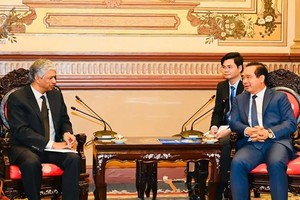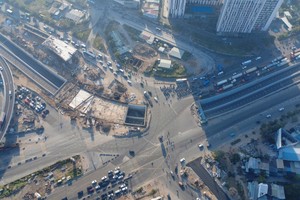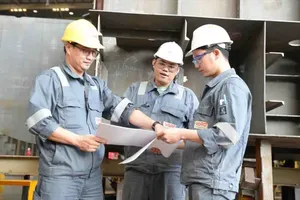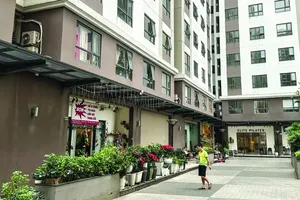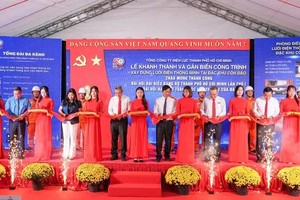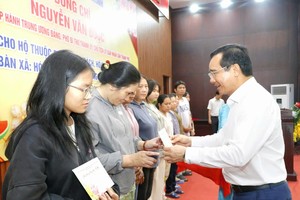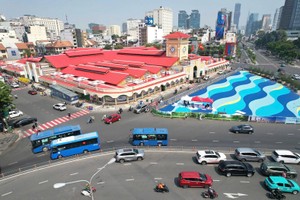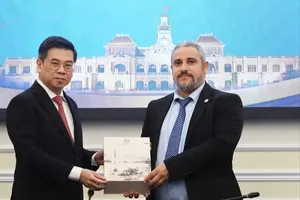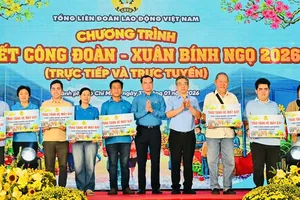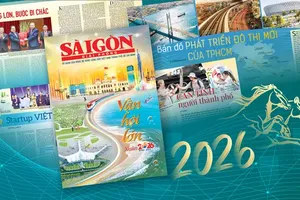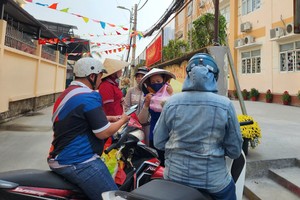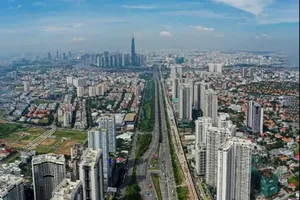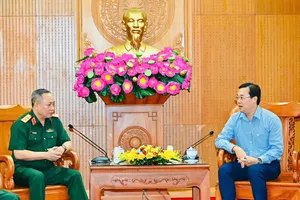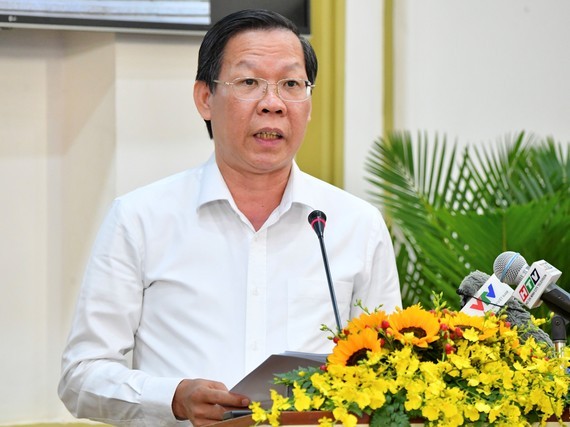 Mr. Phan Van Mai speaks at the meeting ( Photo: SGGP)
Mr. Phan Van Mai speaks at the meeting ( Photo: SGGP)
This morning, the Standing Committee of the municipal People's Council held a meeting on the results of the implementation of the law on public investment in Ho Chi Minh City.
Speaking at the meeting, Mr. Phan Van Mai said that the appraisal and implementation of the medium-term public investment plan for the 2016-2020 period and the 2021-2025 period have been carried out by the People's Committee of Ho Chi Minh City in compliance with the Law on Public Investment and relevant decrees, guidelines, principles approved by the city People's Council.
Since the Law on Public Investment 2014 took effect, Ho Chi Minh City has approved investment policies for 1,949 projects with a total investment capital of the city budget of more than VND302 trillion (US$12,9 billion).
Through the review of the period 2016-2020, 521 projects were transitional projects from 2011 to 2015 with a total capital of more than VND24 trillion, accounting for 16.5 percent of the total medium-term capital between 2016 and 2020. Of which, 324 projects were completed and put into use from 2016 to 2020.
The number of newly started projects in the period 2016 - 2020 is 1,278 projects with a total capital of more than VND57 trillion, accounting for 38.3 percent of the city’s total medium-term capital between 2016 and 2020. Some 456 projects of them are completed and put into use in the period 2016-2020.
From 2021 to 2025, the number of transitional projects from the period of 2016 - 2020 is 1,191 projects (excluding projects implemented in the form of PPP and ODA) with a total capital of more than VND 67 trillion, accounting for 48 percent of the total medium-term capital 2021-2025 from the city budget (VND 142,557 billion), of which 298 projects have been completed and put into use so far.
Many transitional projects from the previous phase affects the progress of new projects between 2021 to 2015 , said Mr. Phan Van Mai.
In addition, according to the provisions of Resolution 54 of the National Assembly on piloting specific mechanisms and policies for the development of Ho Chi Minh City and the provisions of the Law on Public Investment in 2019, the People's Committee in the southern metropolis has submitted to the People's Council in HCMC to decide on investment policy for 13 projects in the group A.
Furthermore, the Chairman assessed that the city has arranged the plan in accordance with the Law on Public Investment and related Decrees and guidelines, the city People's Council’s principles and orientations. Investment projects from the city budget are guaranteed in terms of investment policies, in accordance with the socio-economic development planning, ensure compliance with construction planning and complete procedures as prescribed.
Mr. Phan Van Mai added that although state budget capital accounts for a small proportion of the investment capital of the society, it has brought into play the resources in society for investment and development in various fields. For instance, investment in completing intersections to help reduce traffic congestion, and traffic accidents and improve the traffic situation.
Plus, the state budget has been used for upgrading facilities in the health sector; implementing many breakthrough projects, programs, plans and solutions to innovate the education sector, and improve the quality of human resources according to international standards, towards the goal of integration.
Besides the achievements, the Chairman also mentioned some shortcomings and limitations such as some investors are slow to report, and have not fully implemented the reporting regime for monitoring and evaluation of investment projects. Some investors organize the implementation of project formulation behind the prescribed time whereas the figures are responsible for appraising and approving projects but not based on the results of monitoring and evaluation of the project investment preparation process.
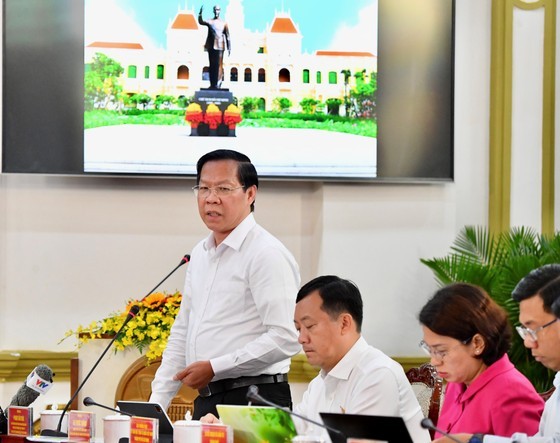 Mr. Phan Van Mai speaks at the meeting ( Photo: SGGP)
Mr. Phan Van Mai speaks at the meeting ( Photo: SGGP)
Last but not least, several competent agencies and units are assigned for approving the estimate of bidding packages exceeding the prescribed norms, which have been detected and handled in accordance with the law.
Through the process of monitoring and inspection, the People's Committee of Ho Chi Minh City identified many main reasons affecting the project such as slow compensation and site clearance, and lack of coordination among stakeholders. Some investors have managed many projects but lack personnel but not updated regulations on construction investment management in time, leading to limited management and operation. In addition, the investor's capacity and project management are still limited, lack of initiative in handling violations of the contractor
After pointing out the above shortcomings and limitations, Chairman Mai proposed a number of key solutions to continue to improve the quality of public investment in the coming time.
Accordingly, the People's Committee of Ho Chi Minh City has determined that promoting the implementation of the public investment plan is a key political task of the Party committees and authorities in the city, in order to promote economic growth and achieve socio-economic development goals of the city.
Moreover, the city People’s Committee will organize briefings to review and check the disbursement progress of public investment projects monthly to evaluate the results of monthly public investment plan disbursement in addition to listening to investors and removing difficulties and obstacles to ensure the project's implementation on time which was approved by competent agencies.
Finally, Mr. Mai said that the city will balance capital sources from the beginning of the year, and annually additional capital sources to make sure that they are consistent with socio-economic development goals. The use of state budget capital is given priority to encourage and call for social contributions to the fields of infrastructure construction, serving the city's social security life; however, the city administration will also strengthen its inspection to handle violations in the management and use of public investment capital.
